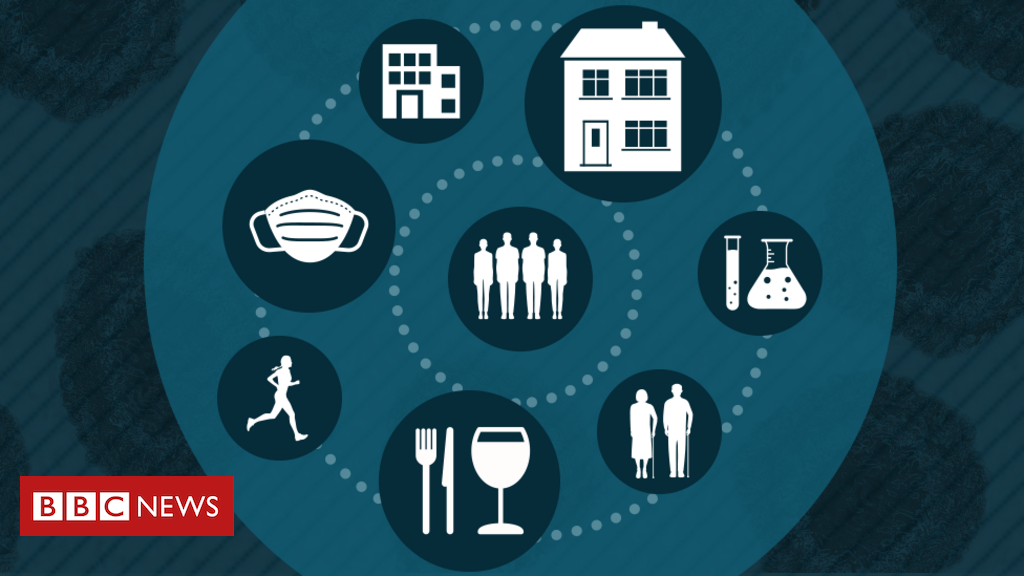Image source, Getty ImagesThe government has announced new Covid rules for England, in response to concern over the Omicron variant. It says people
The government has announced new Covid rules for England, in response to concern over the Omicron variant.
It says people should work from home where possible, and will have to show their Covid status for entry to many venues.
What are the new measures for England?
From Friday 10 December, face coverings will be mandatory for many indoor public venues including theatres and cinemas, as well as in shops and on public transport. Exceptions will be made for singing, exercise, and hospitality settings.
From Monday 13 December, people should work from home “if they can”.
From Wednesday 15 December people will need to show their NHS Covid Pass – or a negative lateral flow test – to gain entry to:
- Nightclubs
- Indoor seated venues with more than 500 people
- Unseated outdoor venues with more than 4,000 people
- Any venue with more than 10,000 people
This piece is currently being updated
What rules are already in place?
What’s happening with boosters?
The booster campaign is being stepped up:
- Booster jabs will be offered to all over-18s
- The gap between second dose and booster will be reduced to three months from six
- People with weakened immune systems will be offered a fourth dose – as a booster – no sooner than three months after their third
- Children aged 12 to 15 will be invited for a second dose, three months after their first
Vulnerable people will be contacted first, followed by older age groups, then younger ones.
People are being urged not to try to book their booster until the NHS says it’s their turn.
Every eligible person in England and Scotland should be able to book their booster by the end of January – although some may be given at a later date.
Why are the new changes being made?
A new Covid variant – Omicron – has been identified, and there are fears that it could be more infectious and less responsive to vaccines.
Precautions are being taken until scientists can properly assess what the new variant’s impact could be.
What are the chances of another lockdown?
The government has repeatedly said it has no plans for another lockdown in England.
In September, Health Secretary Sajid Javid announced a list of measures which would come into place if the NHS came under “unsustainable pressure”.
These included face coverings, but also measures which have not been brought in such as advising people to work from home and mandatory Covid passports.
What’s the situation in Wales?
Current measures already included:
- NHS Covid Pass needed for entry to nightclubs, cinemas, theatres and concert halls and many other indoor and outdoor events
- working from home wherever possible
- face coverings compulsory on public transport, and in shops and hospitals
What’s the situation in Northern Ireland?
- a limit of 30 people from different households mixing indoors in domestic settings
- face coverings compulsory in shops, indoor seated venues and visitor attractions, public transport and some other settings
- post-primary pupils must wear a face covering inside school buildings, as well as on school transport. Staff are encouraged to wear masks in school areas where they can’t socially distance
- vaccine passports for venues including nightclubs, bars and cinemas
What restrictions are currently in place in Scotland?
- physical distancing rules remain in healthcare settings such as hospitals, GP surgeries and dentists, where the 2m (6ft) rule applies
- face coverings still compulsory on public transport and inside places like shops
- all school staff and secondary pupils to wear face coverings indoors
- indoor hospitality venues must collect customer contact details
- working from home where possible
- all over-18s required to prove their vaccine status at nightclubs and other venues
www.bbc.co.uk
